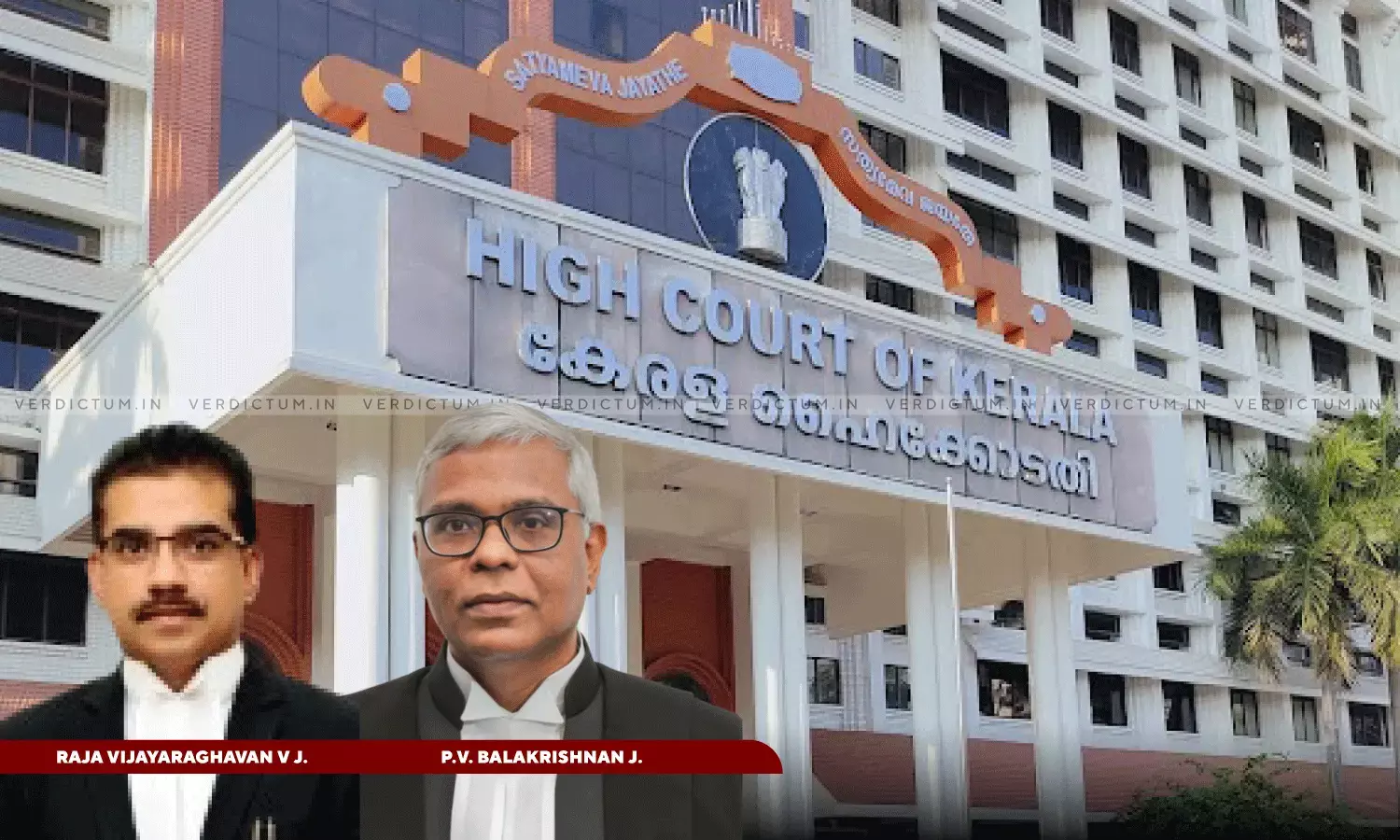Kerala High Court Acquits Mother Of Infanticide; Says Section 115(1) Mental Healthcare Act Bars Prosecution For Suicide Attempt & Other Offences In Same Transaction
The Kerala High Court reiterated that Section 115 creates a statutory presumption that a person committing suicide is under severe stress and due to the stress, he cannot be prosecuted under the IPC.

The Kerala High Court has acquitted a mother convicted of killing her child while clarifying that Section 115(1) of the Mental Healthcare Act not only creates an embargo on punishing a person who has attempted to commit suicide, but also for any other offences under IPC committed in the course of the same transaction.
The Court allowed the mother’s (Appellant) Appeal by setting aside her conviction and sentence by the Trial Court under Sections 302 and 309 of the IPC. The Court referred to its decision in Naveed Raza v. State of Kerala reiterating that Section 115 of the Mental Healthcare Act, 2017 (the Act) creates a statutory presumption that a person committing suicide is under severe stress and due to the stress, he cannot be prosecuted under the IPC.
A Division Bench of Justice Raja Vijayaraghavan V and Justice P.V. Balakrishnan explained, “In other words, we may say that Section 115(1) of the Act, creates an embargo in conducting trial and punishing a person, who has attempted to commit suicide, not only for the offence under Section 309 IPC but also for any other offences under IPC committed in the course of the same transaction, unless it is proved that the person accused is not having severe stress.”
Advocate K.V. Sabu represented the Appellant, while Special Government Pleader Ambika Devi S appeared for the Respondent.
Brief Facts
The Prosecution alleged that the mother, due to mental distress arising from her marital life, smothered her 3-month-old son to death and then attempted suicide.
During the trial, the mother denied the allegations and claimed that an intruder had committed the crime and injured her. However, the Trial Court convicted her.
The mother argued that Section 115 of the Act presumes severe stress in cases of attempted suicide and protects a person from criminal prosecution unless proven otherwise.
Court’s Reasoning
The High Court remarked, “A plain reading of Section 115 of the Act goes to show that notwithstanding anything in Section 309 IPC, a person attempting to commit suicide shall be presumed to have severe stress and unless it is proved otherwise, the person shall not be tried and punished under the said Code.”
“Therefore, even if there are any provisions inconsistent with Section 115 of the Act (with which we are concerned in the present case) in any other law, the former will prevail over the latter,” the Bench noted.
In Naveed Raza (Supra), the Court also clarified that the Act, being a beneficial legislation, would have retrospective operation and that from 2017 onwards the presumption gets attracted and unless the prosecution proves that the person was not under any stress, he is immune from prosecution.
“It is to be taken note that, in the present case admittedly no material has been adduced to show that the accused is not having severe stress. If so, we are of the view that all further proceedings in the trial court after 7/7/2018, till the passing of the impugned judgment are illegal, and are liable to set aside. Hence, we find that the impugned judgment passed against the appellant/accused convicting her under Sections 302 & 309 IPC cannot be sustained.” the Bench held
Consequently, the Court held “The conviction and sentence rendered…against the appellant/accused under Sections 302 and 309 IPC by the Additional Sessions Court-IV, Thrissur are set aside and the appellant/accused is set at liberty.”
Accordingly, the High Court allowed the Appeal.
Cause Title: Sharanya v. State of Kerala (Neutral Citation: 2025:KER:15011)
Appearance:
Appellant: Advocate K.V. Sabu
Respondent: Special Government Pleader Ambika Devi S; Senior Public Prosecutor Neema TV

